Mike Rounds, Joe Manchin seek back pay for military officers affected by Tommy Tuberville holds
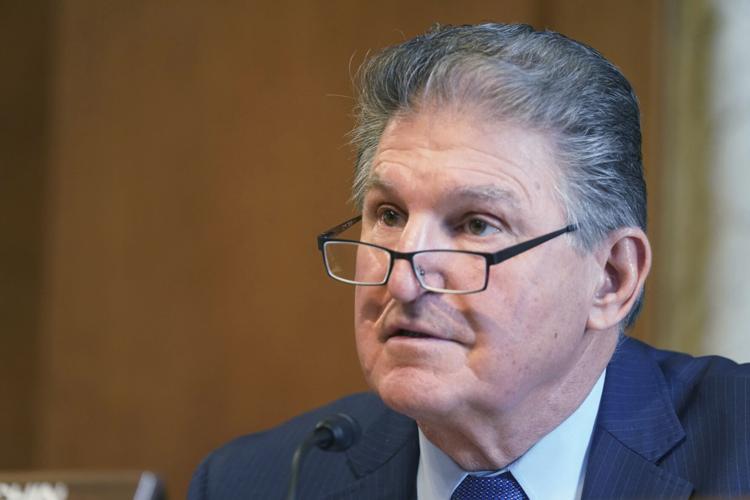
by South Dakota Searchlight staff, Alabama Reflector This story was originally published on South Dakota Searchlight. Senators from South Dakota and West Virginia want hundreds of military officers to receive back pay after an Alabama senator held up their promotions for most of the year. Mike Rounds, a South Dakota Republican, and Joe Manchin, a West Virginia Democrat, announced Friday the introduction of the Military Personnel Confirmation Restoration Act of 2023. The bill comes after Sen. Tommy Tuberville, R-Alabama, ended holds he had placed on hundreds of military promotions in protest of a Pentagon abortion policy. The policy allows armed services members time off and travel reimbursement if they seek an abortion in a state where it remains legal. On Tuesday, Tuberville said he would lift all of his holds except for a handful of four-star general nominees. The men and women who wear the uniform of the United States of America should not be negatively impacted by political squabbles. – Sen. Mike Rounds, R-South Dakota Rounds said Friday in a news release that he, like Tuberville, disagrees with the Pentagon policy and supports “a member of the Senate’s right to hold any nomination.” But, Rounds added, “the men and women who wear the uniform of the United States of America should not be negatively impacted by political squabbles.” “I am pleased to introduce this bipartisan legislation with Senator Manchin to do the right thing and provide military officers and their families with the benefits they have earned for their decades of service and sacrifice,” Rounds said. The press release from Rounds included comments from Manchin, who focused on the affected service members and did not address the abortion policy or the right of senators to hold up nominations. “These men and women are true American heroes and the least we can do in Congress is restore the benefits they have earned and deserve,” Manchin said. The bill co-sponsors include Tuberville. Other co-sponsors are Angus King, I-Maine; Joni Ernst, R-Iowa; Kirsten Gillibrand, D-New York; Richard Blumenthal, D-Connecticut; and Tim Kaine, D-Virginia. South Dakota Searchlight is part of States Newsroom, a network of news bureaus supported by grants and a coalition of donors as a 501c(3) public charity. South Dakota Searchlight maintains editorial independence. Follow South Dakota Searchlight on Facebook and Twitter. Alabama Reflector is part of States Newsroom, a network of news bureaus supported by grants and a coalition of donors as a 501c(3) public charity. Alabama Reflector maintains editorial independence. Follow Alabama Reflector on Facebook and Twitter.
Sen. Tommy Tuberville asks for DOJ, SEC investigation into crypto firm with ties to China

U.S. Senator Tommy Tuberville (R-Alabama) is asking for an investigation of a Chinese-linked crypto-currency exchange company firm Prometheum, Inc. Senator Tuberville recently discussed Prometheum’s alleged China ties on Fox Business Channel’s Larry Kudlow. “Crypto is here to stay,” Tuberville told Kudlow. “We have got to have regulations, but the thing that we are running into now is we have got what we call crypto exchanges that are coming around all over the country. They have to be approved by the SEC and FINRA, the two regulators.” Tuberville continued, “We all know that they (China) are our number one adversary – the Republicans, the Democrats, people across the country, but somebody needs to tell our financial regulators because what has happened recently. There is a company, Promethium, that has been given the rights to a crypto exchange. Their biggest investor is Wanxiang which is a Communist China Party company. It is their biggest investor. What’s going on with our regulators? There was several dozen companies and people who applied for this, but they went with the Chinese Communist Party company.” Tuberville and five congressional colleagues sent a letter to U.S. Attorney General Merrick Garland and Securities and Exchange Commission (SEC) Chair Gary Gensler requesting a review of inconsistencies in congressional testimony given by digital asset firm Prometheum, Inc.’s Co-CEO Aaron Kaplan and the company’s SEC filings. Senator Tuberville announced the letter in an op-ed published by 1819 News. “Lying to Congress is a crime. Providing misleading information to investors in SEC filings constitutes securities fraud,” said Sen. Tuberville. “…If Prometheum ended its tech buildout with its China-based partners in December 2019 as Mr. Kaplan led Congress to believe, that development should have been reflected in the company’s SEC filings. Instead, Prometheum continued to tout its China-tainted tech partnership to regulators and potential investors for nearly two more years.” Prometheum’s largest outside investor is a China-based company – Shanghai Wanxiang Blockchain, Inc. (Wanxiang) and its subsidiary HashKey Digital Asset Group, Ltd. (HashKey)- with deep ties to the Chinese Communist Party (CCP) that were documented in a Wall Street Journal op-ed written by Senator Tuberville last month. HashKey holds a seat on Prometheum’s board, and until October 2021, Prometheum benefitted from a formal technology development agreement with its Chinese partners. In written testimony submitted to Congress for a June 13 House Financial Services Committee hearing on the future of digital assets, Mr. Kaplan indicated Prometheum began developing its technology platform without influence from Wanxiang or HashKey in December 2019. Tuberville claims that SEC filings submitted by Prometheum throughout 2020 and for most of 2021 indicate the technology development partnership was still in force until October 2021. The letter sent to the Attorney General and the SEC Chair by Sen. Tuberville and his congressional colleagues requests a review of these inconsistencies. Last month, Senator Tuberville sent an oversight letter to the SEC and the Financial Industry Regulatory Authority (FINRA), objecting to those agencies’ approval of Prometheum Ember Capital, LLC – a subsidiary of Prometheum, Inc. – as a special purpose broker-dealer to custody digital asset securities. Tuberville has requested an investigation. Tuberville said that he and Senator Kirsten Gillibrand introduced legislation last week that will keep companies partly owned by the Chinese Communist Party from being able to invest in financial exchanges. “That will keep out Chinese Communist Party investors out of crypto, out of our exchanges, but these regulators are asleep at the wheel,” Tuberville said. “It is just another thing that the Biden Administration has let the Chinese do and get by with, and we need to put a stop to it.” Tuberville was elected to the Senate in 2020. To connect with the author of this story or to comment, email brandonmreporter@gmail.com.
Tommy Tuberville announces bipartisan bill to block Chinese owned companies from owning crypto-currency exchanges
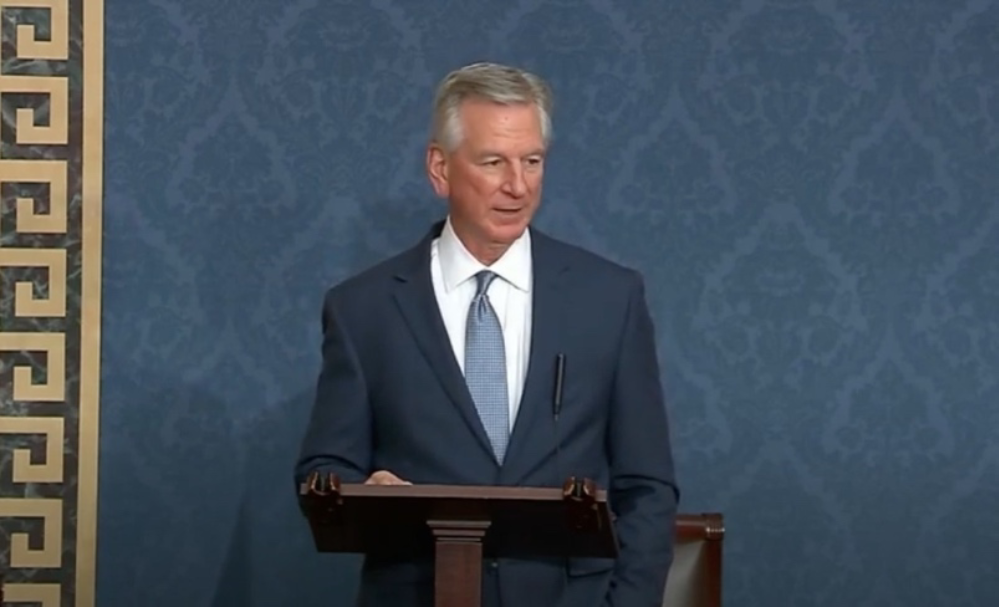
U.S. Senator Tommy Tuberville last week announced a bipartisan plan to block Chinese companies from owning American cryptocurrency companies. In an op-ed in The Wall Street Journal, Tuberville announced a bipartisan bill, with U.S. Senator Kirsten Gillibrand (D-New York), to amend the Commodity Exchange Act to prohibit entities organized or established in the People’s Republic of China (PRC) or a subsidiary of such an entity from acquiring a U.S. digital asset broker, dealer, custodian, or exchange. “This bipartisan bill will help to wall off the burgeoning American digital commodity industry from CCP interference and preserve our data privacy and investor protection rights,” wrote Senator Tuberville. “It will also help ensure that America continues to lead in financial innovation, which is essential to maintaining America’s position in the world.” The bill would prohibit the Commodity Futures Trading Commission (CFTC) from registering a digital commodity platform owned in whole or in part by an entity organized or established in the PRC. It also requires the CFTC to revoke the registration of any digital commodity platform if an entity with ties to the Chinese Communist Party (CCP) acquires all or any part of the ownership of the entity. Tuberville and Gillibrand say they are concerned because digital commodity platforms collect and store their users’ personally identifiable information — including Social Security numbers, mailing addresses, and sensitive financial account data. They claim that allowing entities based in the PRC to access this information raises serious concerns about investor protection, data privacy, national security, sanctions compliance, and anti-money laundering efforts. They also expressed concerns that companies based in the PRC all ultimately answer to the CCP. On Monday, Senator Tuberville sent an oversight letter to both the Securities and Exchange Commission (SEC) and the Financial Industry Regulatory Authority (FINRA), objecting to those agencies’ approval of a Chinese-connected crypto securities broker-dealer, Prometheum Ember Capital, LLC. In May, Senator Tuberville sent a similar letter to financial regulators asking for details surrounding Chinese-linked stock trading platforms operating in the U.S. Under current law, U.S. regulators have limited tools to block the purchase of a U.S. digital commodity platform by a CCP-tied entity. Tuberville and Gillibrand say that their bipartisan bill will help to shield the burgeoning U.S. digital asset industry from Chinese interference and help to ensure continued American leadership in financial innovation. Investors in crypto-currencies lost over $2 trillion last year, highlighting how speculative and risky those alternative investments actually are. Sen. Tuberville is also leading the call for an investigation into Webull Financial, LLC and Moomoo, Inc. — two Chinese-owned stock trading apps operating in the United States that are registered with the SEC and FINRA. Both apps are widely used by American investors and freely collect and store sensitive information about users, including Social Security numbers, mailing addresses, and financial account data. In May 2023, Senator Tuberville sent a letter to SEC Chair Gary Gensler and FINRA President and CEO Robert Cook calling for oversight of the trading platforms due to the potential CCP access of American user data. In the letter, Senator Tuberville expressed concerns about the ability of the SEC and FINRA to examine the Chinese companies’ compliance with U.S. law. Tuberville’s concerns about China are not limited to just financial markets. In March, Senator Tuberville led a congressional delegation to Panama to discuss countering China’s growing influence in the region. On the trip, Senator Tuberville met with American and Panamanian officials to strategize ways to combat Chinese attempts to control the Panama Canal, which would give China enormous influence over global supply chains. The United States built the Panama Canal in the early part of the 20th century. In the 1970s then-President Jimmy Carter transferred it back to Panama. The Panamanians, with Chinese technical assistance and capital, have since widened and modernized the canal. Tuberville has also introduced legislation to ban members of the CCP from receiving B-1 and B-2 visas to the United States for vacation and non-official government business, citing the CCP’s responsibility for trillions of dollars of intellectual property theft each year. The bill cosponsored by Senator Tuberville would bar all 93 million CCP members from entering the United States using nonimmigrant B-1 and B-2 visas. Tuberville has expressed concerns about the retirement savings of our military and federal government employees, known as the Thrift Savings Plan (TSP) being invested in the economies of our adversaries like China. Tuberville previously wrote about this issue in the Wall Street Journal in a column entitled, “I’ll Keep Veterans’ Pensions Safe From Communism.” To that end, Tuberville has pushed for accountability from the Federal Retirement Thrift Investment Board (FRTIB) surrounding the board’s policy on foreign investments. Tuberville has even placed a hold on nominees to the FRTIB until the nominees provided clarification regarding foreign investment policies, which forced the nominees to commit to opposing TSP investment in China. Tommy Tuberville was elected to the U.S. Senate in 2020 following decades as an educator, football coach, and sports broadcaster. To connect with the author of this story or to comment, email brandonmreporter@gmail.com.
Senate tees up vote on bill to aid vets exposed to burn pits

A bill enhancing health care and disability benefits for millions of veterans exposed to toxic burn pits is expected to win final approval in the Senate on Tuesday, ending a brief stalemate over the measure that had infuriated advocates and inspired some to camp outside the Capitol. President Joe Biden has pushed for the legislation, saying the measure “makes good on our sacred obligation” to care for veterans and their families. The Senate overwhelmingly approved the legislation once before, but it required a do-over for a technical fix. But the process derailed when Republicans made a late attempt to change another aspect of the bill last week and blocked it from advancing. The abrupt delay outraged veterans groups and advocates, including comedian Jon Stewart. It also placed GOP senators in the uncomfortable position of delaying the top legislative priority of service organizations this session of Congress. A group of veterans and their families have been camping out at the Capitol since that vote. Senate Majority Leader Chuck Schumer, D-N.Y., said he had good news for them, announcing a final vote for Tuesday evening. “Veterans who were exposed to the toxic fumes of burn pits will be treated by the VA like they should have been from the beginning,” Schumer said. Some Democrats have questioned whether Republicans blocked the bill for spite, after an announcement just hours earlier that key Democrats had agreed on a way forward on a health, energy, and tax bill that Republicans oppose and may be unable to stop. “Wait a minute. You’re not going to help our veterans because we want to lower the cost of prescription drugs, because we want to lower the cost of health care, because we want to protect the planet? Of course, you don’t agree with any of those things, but would you use that to vote against our veterans?” House Speaker Nancy Pelosi, D-Calif., said at a press conference last week. “It’s really immoral, almost criminal.” Republican senators rejected that charge and said the changes they seek would not affect spending for veterans in the bill. The bill contains two major components for veterans who served in Iraq and Afghanistan. Veterans who served near burn pits will get ten years — rather than five — of enhanced health care coverage through the Department of Veterans Affairs upon their separation from the military. Second, the legislation directs the VA to presume that certain respiratory illnesses and cancers were related to burn pit exposure, allowing veterans to obtain disability payments to compensate for their injury without having to prove the illness was a result of their service. Roughly 70% of disability claims related to burn pit exposure are denied by the VA due to lack of evidence, scientific data, and information from the Defense Department. The military used burn pits to dispose of such things as chemicals, cans, tires, plastics, and medical and human waste. Hundreds of thousands of Vietnam War-era veterans and survivors also stand to benefit from the legislation. The bill adds hypertension, or high blood pressure, as a presumptive disease associated with Agent Orange exposure. The Congressional Budget Office projected that about 600,000 of 1.6 million living Vietnam vets would be eligible for increased compensation, though only about half would have a severe enough diagnosis to warrant more compensation. Also, veterans who served in Thailand, Cambodia, Laos, Guam, American Samoa, and Johnston Atoll will be presumed to have been exposed to Agent Orange. That’s another 50,000 veterans and survivors of deceased veterans who would get compensation for illnesses presumed to have been caused by their exposure to the herbicide, the CBO projected. The bill is projected to increase federal deficits by about $277 billion over ten years and does not include offsetting spending cuts or tax increases to help pay for it. When the CBO scored the bill, it projected that nearly $400 billion spent on VA services would take place as mandatory spending rather than discretionary spending. The Committee for a Responsible Federal Budget, a nonpartisan fiscal watchdog, said a reclassification to mandatory would “both reduce the pressure to keep those costs under control and make it easier for appropriators to spend more elsewhere in the budget without offsets.” Sen. Pat Toomey, R-Pa., is seeking a vote for an amendment that he said would not change the spending slated for veterans programs but how the government accounts for that spending. However, the dynamics Toomey has spoken about also applied to the bill when the Senate voted on it in June. Senators then voted for the measure by a resounding vote of 84-14, raising questions about why Republicans voted against advancing the do-over effort last week. Advocacy groups for veterans, a key voting bloc in the upcoming midterm elections, were furious and ramped up the political pressure on lawmakers to act. At a Capitol Hill news conference the day after last week’s procedural vote, speakers used terms such as “villains” and “reprehensible” to describe the Republican senators who voted against advancing the measure last week but voted for almost the exact same bill in June. “Veterans are angry and confused at the sudden change from those they thought had their backs,” said Cory Titus of the group Military Officers Association of America. Sen. Kirsten Gillibrand, D-N.Y., said the veterans camped out at the Capitol are exhausted and want to go home. “But they will not. They will not go home until the job is done,” Gillibrand said. Republished with the permission of The Associated Press.
Joe Biden urges bill over ‘finish line’ as Dems eye new surtax
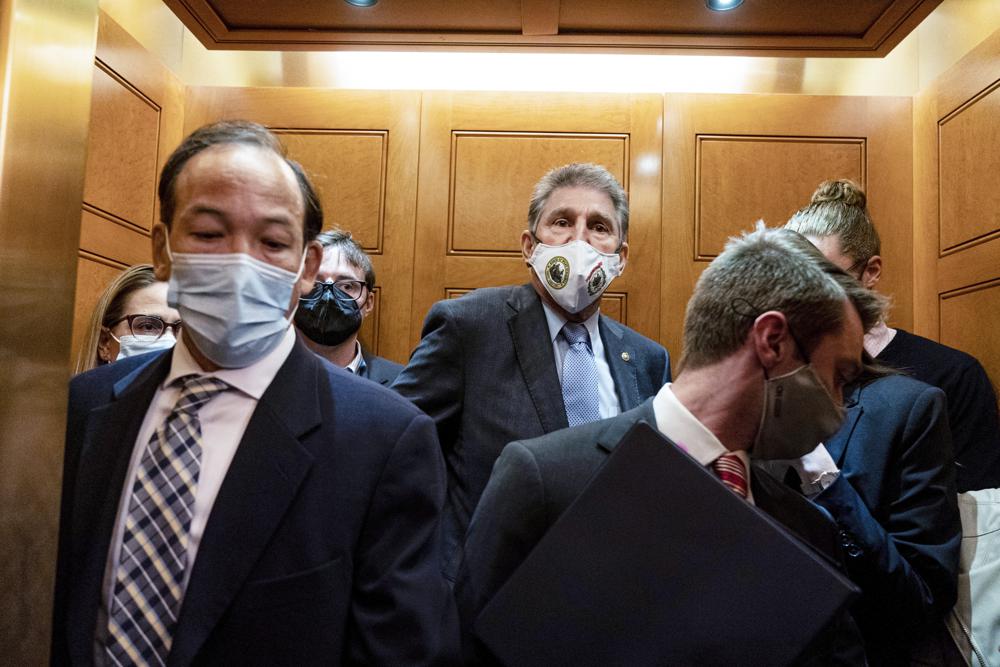
With his signature domestic initiative at stake, President Joe Biden is urging Democrats to wrap up talks and bring the social services and climate change bill “over the finish line” before he departs Thursday for global summits overseas. Top Democratic leaders are signaling a deal is within reach even though momentum fizzled and tempers flared late Wednesday after a billionaires’ tax and a paid family leave program fell out of the Democrats’ sweeping bill, mostly to satisfy a pivotal senator in the 50-50 Senate. But expanded health care programs, free pre-kindergarten, and some $500 billion to tackle climate change remain in the mix in what’s now at least a $1.75 trillion package. And Democrats are eyeing a new surcharge on the wealthy — 5% on incomes above $10 million and an additional 3% on those beyond $25 million — to help pay for it, according to a person who requested anonymity to discuss the private talks. “They’re all within our reach. Let’s bring these bills over the finish line.” Biden tweeted late Wednesday. Biden could yet visit Capitol Hill before traveling abroad, and House Democrats were set to meet in the morning. Besides pressing for important party priorities, the president was hoping to show foreign leaders the U.S. was getting things done under his administration. The administration is assessing the situation “hour by hour,” White House press secretary Jen Psaki said. It was a fast-moving day on Capitol Hill that started upbeat as House Speaker Nancy Pelosi declared that Democrats were in “pretty good shape.” But hopes quickly faded as Biden’s big proposal ran into stubborn new setbacks, chief among them how to pay for it all. A just-proposed tax on billionaires could be scrapped after Democratic Sen. Joe Manchin of West Virginia objected, according to a senior party aide, who requested anonymity to discuss the private talks. The billionaires’ tax proposal had been designed to win over another Democratic holdout, Sen. Kyrsten Sinema of Arizona, but Manchin panned it as unfairly targeting the wealthy, leaving Democrats at odds. “People in the stratosphere, rather than trying to penalize, we ought to be pleased that this country is able to produce the wealth,” Manchin told reporters. Manchin said he prefers a minimum 15% flat “patriotic tax” to ensure the wealthiest Americans don’t skip out on paying any taxes. Nevertheless, he said: “We need to move forward.” Next to fall was a proposed paid family leave program that was already being chiseled back from 12 to four weeks to satisfy Manchin. But with his objections, it was unlikely to be included in the bill, the person said. Sen. Kirsten Gillibrand, D-N.Y., had devised several new options for Manchin’s review and told reporters late in the evening, “It’s not over until it’s over.” Together, Manchin’s and Sinema’s objections packed a one-two punch, throwing Biden’s overall plan into flux, halving what had been a $3.5 trillion package, and infuriating colleagues along the way. In the evenly divided Senate, Biden needs all Democrats’ support with no votes to spare. White House officials met at the Capitol with Manchin and Sinema, two senators who now hold enormous power, essentially deciding whether or not Biden will be able to deliver on the Democrats’ major campaign promises. “Making progress,” Sinema said as she dashed into an elevator. A Sunday deadline loomed for approving a smaller, bipartisan roads-and-bridges infrastructure bill or risk allowing funds for routine transportation programs to expire. But that $1 trillion bill has been held up by progressive lawmakers who are refusing to give their support without the bigger Biden deal. Despite a series of deadlines, Democrats have been unable to close the deal among themselves, and Republicans overwhelmingly oppose the package. At best, Democrats could potentially reach a framework Thursday that could send Biden overseas with a deal in hand and unlock the process while the final details were sewn up. Applying pressure, Pelosi announced a Thursday committee hearing to spur the Biden package along toward a full House vote, though the timing remained uncertain. Democrats had hoped the unveiling of the billionaires tax Wednesday could help resolve the revenue side of the equation after Sinema rejected the party’s earlier idea of reversing Donald Trump-era tax breaks on corporations and the wealthy, those earning more than $400,000. The new billionaires’ proposal would tax the gains of those with more than $1 billion in assets or incomes of more than $100 million over three consecutive years — fewer than 800 people — requiring them to pay taxes on the gains of stocks and other tradeable assets, rather than waiting until holdings are sold. The billionaires’ tax rate would align with the capital gains rate, now 23.8%. Democrats have said it could raise $200 billion in revenue that could help fund Biden’s package over ten years. Republicans have derided the billionaires’ tax as “harebrained,” and some have suggested it would face a legal challenge. But Democratic Sen. Ron Wyden of Oregon, chairman of the Senate Finance Committee, insisted the billionaires tax remains on the table. “I’ve not heard a single United States senator — not one — get up and say, ‘Gee, I think it’s just fun that billionaires pay little or nothing for years on end,’” Wyden said. More likely in the mix was the companion proposal, a new 15% corporate minimum tax, as well as the new surtax being proposed on higher incomes above $10 million. Together they are designed to fulfill Biden’s desire for the wealthy and big business to pay their “fair share.” They also fit his promise that no new taxes hit those earning less than $400,000 a year, or $450,000 for couples. Biden wants his package fully paid for without piling on debt. Resolving the revenue side has been crucial, as lawmakers figure out how much money will be available to spend on the new health, child care, and climate change programs in Biden’s big plan. Among Democrats, Rep. Richard Neal of Massachusetts, the chairman of the Ways and Means Committee, said he told Wyden
Tommy Tuberville joins other leaders to change sexual assault investigations in the military
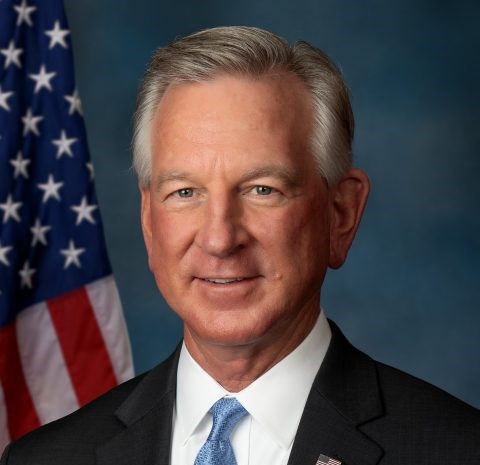
U.S. Senator Tommy Tuberville has joined a bipartisan group of senators to support a bill that will change the way the military conducts sexual assault investigations and prosecutions. Tuberville, a member of the Senate Armed Services Committee Subcommittee on Personnel, joined U.S. Senators Kirsten Gillibrand (D-NY), Chuck Grassley (R-IA), Joni Ernst (R-IA), Richard Blumenthal (D-CT), Ted Cruz (R-TX), Jeanne Shaheen (D-NH), Mark Kelly (D-AZ), and 28 other Senators to introduce the Military Justice Improvement and Increasing Prevention Act. According to the press release, the legislation “keeps the prosecution of sexual assault crimes within the military but moves the decision to prosecute to independent, trained, professional military prosecutors, and provides for several new prevention provisions such as better training for commanders and increased physical security measures, while ensuring that commanders still have the ability to provide strong leadership and ensure a successful command climate.” Tuberville stated, “Our men and women in uniform sacrifice every day to keep us safe, often working in some pretty unsafe places around the world. The last thing they should be worrying about is whether they’re unsafe within their ranks, and they certainly shouldn’t have to fear retaliation if they report a sexual assault. This bill is what happens when a bipartisan group of senators come together to get something done. I’m thankful that Senator Gillibrand and Senator Ernst have led the charge, and I’m glad to join my colleagues in support of this bill that will help improve the way the military handles sexual assaults so survivors can get the justice they deserve.” The bill was introduced in 2019, but did not receive a vote. Specifically, the legislation would: Move the decision on whether to prosecute serious crimes to independent, trained, and professional military prosecutors, while leaving misdemeanors and uniquely military crimes within the chain of command. Ensure the Department of Defense supports criminal investigators and military prosecutors through the development of unique skills needed to properly handle investigations and cases related to sexual assault and domestic violence. Require the Secretary of Defense to survey and improve the physical security of military installations– including locks, security cameras, and other passive security measures – to increase safety in lodging and living spaces for service members. Increase, and improve training and education on military sexual assault throughout our armed services. Kirsten Gillibrand stated on Twitter, “Here’s a bipartisan mission we can all support: Survivors of military sexual assault deserve justice. I’m proud to have @JoniErnst join me this week to introduce our new, improved bill to reform the military justice system and invest in prevention.” Here’s a bipartisan mission we can all support: Survivors of military sexual assault deserve justice. I’m proud to have @joniernst join me this week to introduce our new, improved bill to reform the military justice system and invest in prevention. https://t.co/pYYUL6IRyA — Kirsten Gillibrand (@SenGillibrand) April 27, 2021 The legislation is cosponsored by U.S. Senators Kirsten Gillibrand (D-NY), Chuck Grassley (R-IA), Joni Ernst (R-IA), Richard Blumenthal (D-CT), Ted Cruz (R-TX), Jeanne Shaheen (D-NH), Tammy Baldwin (D-WI), Chris Van Hollen (D-MD), Angus King (I-ME), Michael Braun (R-IN), Dick Durbin (D-IL), Tammy Duckworth (D-IL), Michael Bennet (D-CO), Rand Paul (R-KY), Chris Coons (D-DE), Mark Kelly (D-AZ), Sherrod Brown (D-OH), Bob Casey Jr. (D-PA), Maggie Hassan (D-NH), Mazie K. Hirono (D-HI), Amy Klobuchar (D-MN), Patrick Leahy (D-VT),Elizabeth Warren (D-MA), Ron Wyden (D-OR), Cynthia Lummis (R-WY), Dianne Feinstein (D-CA), Catherine Cortez Masto (D-NV), Raphael Warnock (D-GA), Alex Padilla (D-CA), Shelley Moore Capito (R-WV), Gary C. Peters (D-MI), Tim Kaine (D-VA), Tina Smith (D-MN), Bob Menendez (D-NJ), and Martin Heinrich (D-NM).
Joe Biden, nominee-in-waiting. And waiting. And waiting.
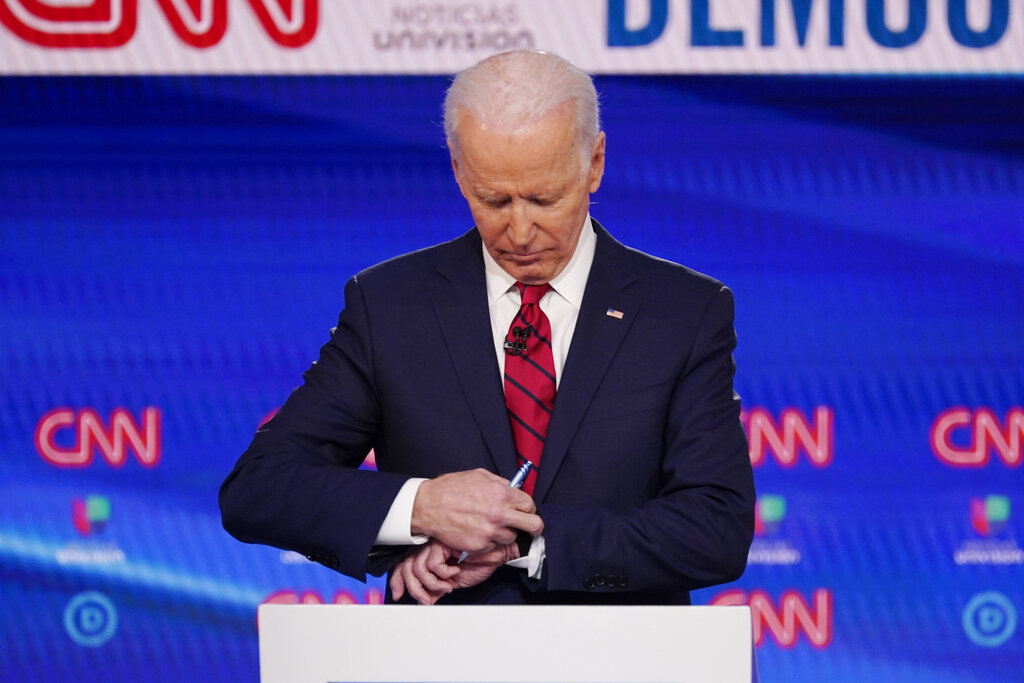
Joe Biden holds an essentially insurmountable delegate lead over Bernie Sanders.
Bradley Byrne: Walking the walk in the fight for life
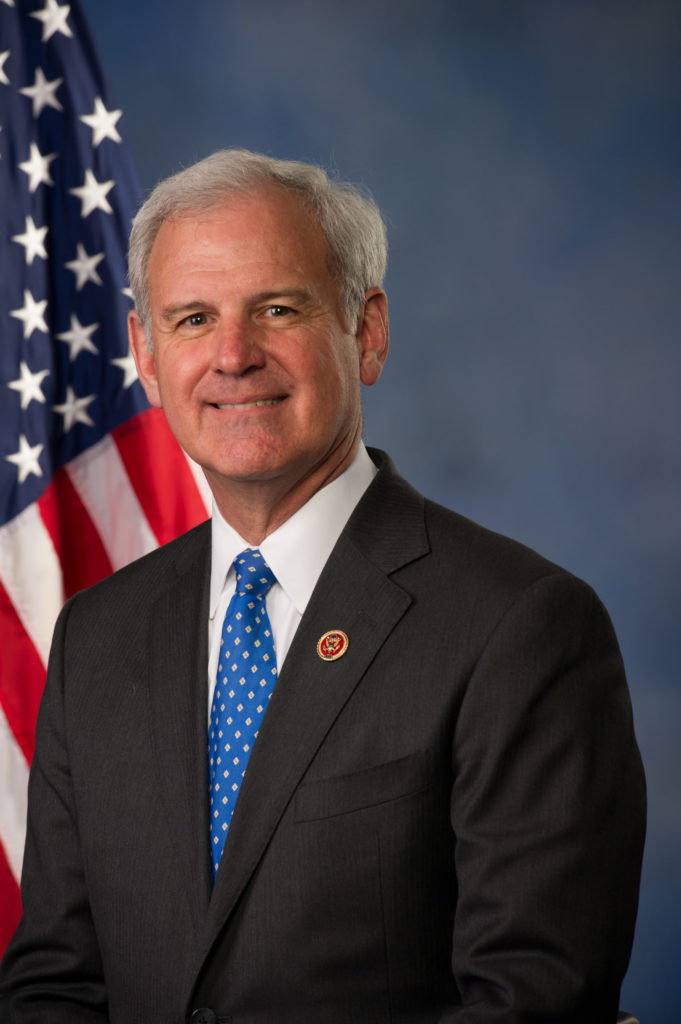
Congressman Byrne discusses last week’s March for Life and the impact of Donald Trump’s unprecedented attendance at the rally.
Harris, Gillibrand offer plans to bolster maternal care
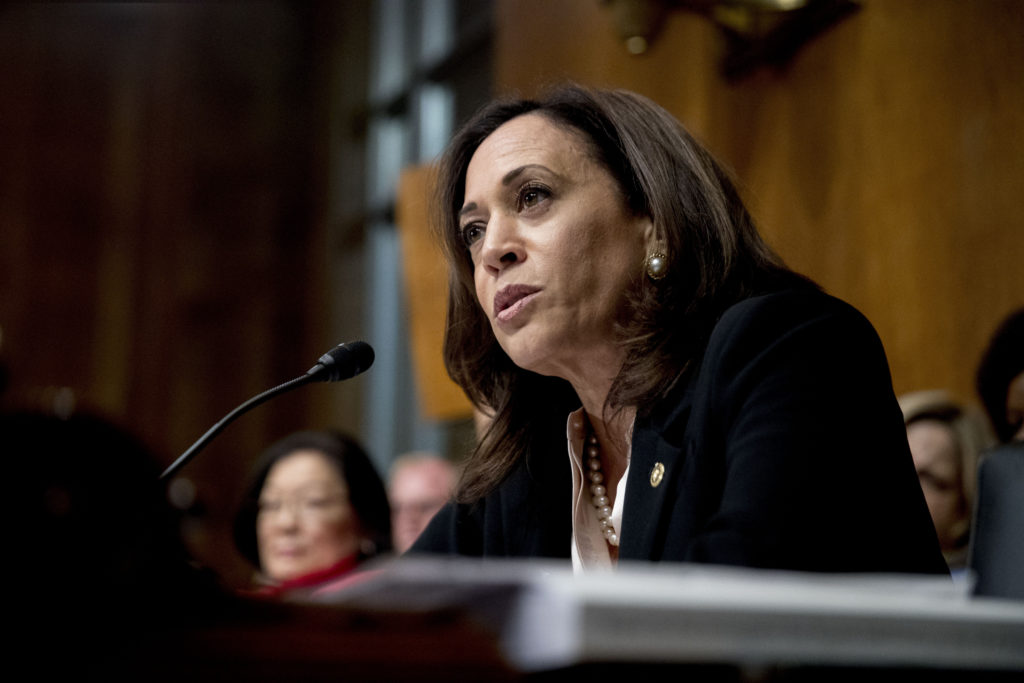
Two Democratic women running for president unveiled plans Wednesday to improve maternal health care, with Sen. Kamala Harris reintroducing a bill aimed at addressing racial disparities in childbirth care and Sen. Kirsten Gillibrand promising to make adoptions and high-tech fertility treatments more accessible to those who want children. Harris’ bill, first introduced in 2018, would create a $25 million program to fight racial bias in maternal care. It would direct grants to medical schools, nursing schools and other training programs to improve care for black women, who are three to four times more likely than white women to die in childbirth . Her revived proposal also would allocate an additional $125 million toward identifying high-risk pregnancies and, according to her Senate office, provide mothers with the “culturally competent care and resources they need.” “Black mothers across the country are facing a health crisis that is driven in part by implicit bias in our health care system,” Harris, of California, said in a statement. “We must take action to address this issue, and we must do it with the sense of urgency it deserves.” Harris and Gillibrand, of New York, are among a number of contenders for the Democratic presidential nomination focused on maternal mortality rates. The issue was the first that Massachusetts Sen. Elizabeth Warren was questioned on at a recent candidate forum in Houston focused on issues key to women of color, and she recently penned an op-ed for Essence magazine on the topic. New Jersey Sen. Cory Booker earlier this year teamed up with Massachusetts Rep. Ayanna Pressley and introduced legislation aimed at reducing the country’s maternal mortality rate, particularly among black women. Gillibrand announced a plan for a Family Bill of Rights , which she vowed to implement promptly if elected president. It seeks to improve access to obstetrician-gynecologists in rural areas, while making adoptions or in vitro fertilization more affordable for everyone wanting children, regardless of income, religion or sexual orientation. Her plan would provide government-sponsored “baby bundles” for new parents, with diapers, onesies, a small mattress and other items designed to make newborn nurseries healthier. It further includes beefed-up paid family leave allowing parents to care for their children into infancy, universal prekindergarten programs and expanded child care tax credits. “The Family Bill of Rights will make all families stronger — regardless of who you are or what your zip code is — with a fundamental set of rights that levels the playing field starting at birth,” Gillibrand said in a statement.Gillibrand said she had a “several ideas” to pay for the proposed initiatives, including a 0.1% tax on financial transactions like stock purchases, which she says would generate $777 billion over 10 years. Associated Press Writer Laurie Kellman contributed to this report.
2020 Democratic primary field puts diversity in spotlight

The early days of the Democratic primary campaign are highlighting the party’s diversity as it seeks a nominee who can build a coalition to take on President Donald Trump. Of the more than half dozen Democrats who have either moved toward a campaign or declared their candidacy, four are women: Sens. Kirsten Gillibrand of New York, Kamala Harris of California and Elizabeth Warren of Massachusetts and Rep. Tulsi Gabbard of Hawaii. Harris is also African-American. Former Obama Cabinet member Julian Castro, who is Latino, has also joined the race. And on Wednesday, Democrat Pete Buttigieg, the 37-year-old mayor of South Bend, Indiana, jumped into the campaign. If he wins the Democratic nomination, he would be the first openly gay presidential nominee from a major political party. He would also be the youngest person ever to become president if he wins the general election. The diversity is likely to expand in the coming weeks as other Democrats enter the race. The field that’s taking shape follows a successful midterm election in which Democrats elected a historically diverse class of politicians to Congress, a pattern they’d like to repeat on the presidential scale. Neera Tanden, president of the liberal Center for American Progress Action Fund, hailed the Democrats’ multiple trailblazing candidates for reflecting that “the central opposition to Trump is around a vision of the country that’s inclusive of all Americans.” “A lot of different people are going to see that they can be part of the Democratic Party” thanks to a field that showcases women, candidates of color, and the first potential LGBT nominee, Tanden said. The primary “hopefully will bring a lot of people into the process,” she added, recalling the high number of voters who engaged in a 2008 Democratic primary that featured a possible female nominee, Hillary Clinton, and the man who would become the first black president, Barack Obama. The array of backgrounds was on display Wednesday when Buttigieg spoke in personal terms about his marriage. “The most important thing in my life — my marriage to Chasten — is something that exists by the grace of a single vote on the U.S. Supreme Court,” Buttigieg told reporters. “So I’m somebody who understands — whether it’s through that or whether it’s through the fact that I was sent to war on the orders of the president — I understand politics not in terms of who’s up and who’s down or some of the other things that command the most attention on the news but in terms of everyday impacts on our lives.” Gillibrand has put her identity as a mother at the core of her campaign, and Harris launched her campaign on this week’s Martin Luther King holiday, a nod to her historic bid to become the first black woman elected president. A number of high-profile candidates remain on the sidelines, including two who would further bolster the diversity of the 2020 field: Sens. Cory Booker of New Jersey, who is black, and Amy Klobuchar of Minnesota. Booker, who’s widely expected to join the presidential fray in the coming days, visited the pivotal early-voting state of South Carolina this week for public events honoring King and private meetings with local activists. Klobuchar is set to speak at the University of Pennsylvania on Thursday about her work on the Senate Judiciary Committee, where Booker and Harris also are members. The affable Midwesterner recently told MSNBC that her family “is on board” if she opts to run in 2020, though she’s offered little clarity about her timetable to announce a decision. Though Klobuchar would be the fifth major female candidate in the Democratic primary, female candidates shouldn’t be shoehorned into a “narrative” dominated by their identity that excludes the policies they’re championing, said Virginia Kase, CEO of the League of Women Voters. Kase pushed back at one popular 2018 narrative in a recent interview, noting that that “every year is the year of the woman — the reality is that we’ve always been major contributors” in the electoral process. Rashad Robinson, executive director of the civil rights-focused nonprofit Color of Change, said in an interview that the diversity of the Democratic field is “a great thing and we should celebrate it,” adding that, “Our work is always about changing the rules — changing the rules of who can run and who can rule and who can lead is incredibly important.” But in addition to those “unwritten rules,” Robinson pointed to the urgency of changing the “written rules” of American life, adding that “diversity alone does not mean structures and policies and practices that have held so many back will change” overnight. Meanwhile, three white male candidates who could scramble the race — former Vice President Joe Biden, Sen. Bernie Sanders of Vermont, and former Texas Rep. Beto O’Rourke — are still weighing their own presidential plans. Biden addressed a key vulnerability in his potential candidacy this week by publicly airing regret about his support for a 1994 crime bill that’s had particularly negative effects on African-American communities, while Sanders built his own new connections to black voters during a trip to South Carolina. As Biden mulls a run for president, his allies have been sending supporters a memo that could serve as a rationale for a campaign. The memo hails Biden’s long track record in politics and argues that at a time of “unprecedented political chaos” during Trump’s administration, Biden would offer “trustworthy, compassionate leadership.” O’Rourke, for his part, continues to gauge his own future amid pundits’ criticism about blog posts he published during a recent road trip through multiple states. The 46-year-old Texan acknowledged that he’s been “in and out of a funk” following his departure from Congress after losing a high-profile Senate race in November, sparking questions about the luxury of his indecision given the family wealth and network of passionate backers he can lean on. As the Democratic field is poised to become more diverse, Republicans say Trump will run for re-election based on his
Martin Luther King holiday offers stage for Democratic hopefuls
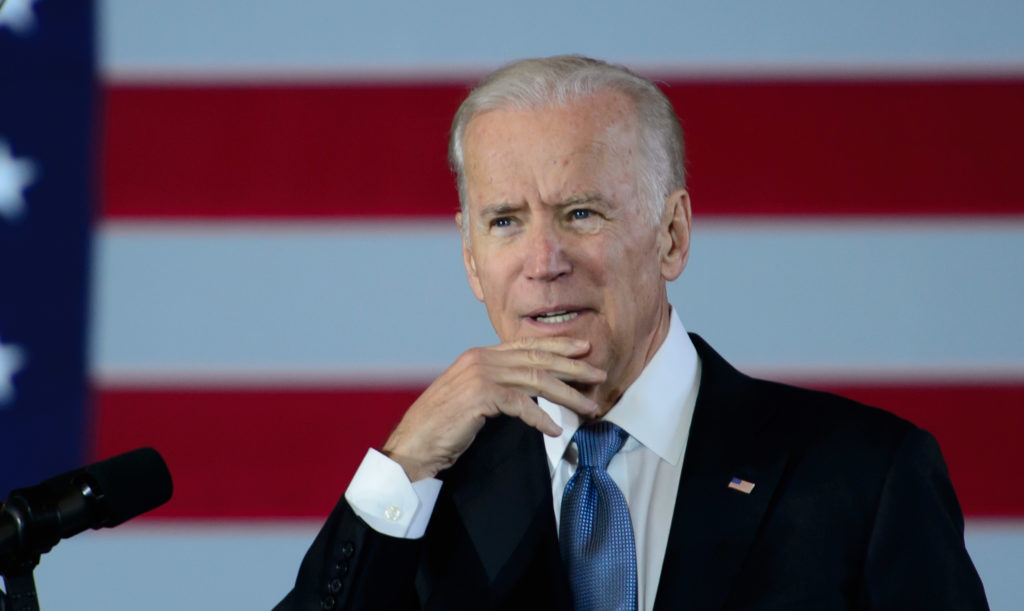
As Americans commemorate Martin Luther King Jr., Democratic presidential hopefuls are fanning out across the country to honor the civil rights leader and make themselves heard on the national stage. Sen. Kamala Harris, D-Calif., used the holiday to launch a presidential campaign that, if successful, would make her the first woman and the second black candidate to become president. South Carolina, a critical early-voting state in the Democratic primary, hosted two senators expected to seek the White House in 2020: Cory Booker of New Jersey and Bernie Sanders of Vermont. In the nation’s capital, two possible 2020 contenders, former Vice President Joe Biden and former New York Mayor Michael Bloomberg spoke at a breakfast celebrating King’s life that was held by the Rev. Al Sharpton. Two candidates who have already opened exploratory committees — Sens. Elizabeth Warren of Massachusetts and Kirsten Gillibrand of New York — were also appearing at King-centered events. While the Democratic field for 2020 is only beginning to take shape, the year that would have marked King’s 90th birthday gives the party’s prominent members a valuable opportunity to address race and, potentially, draw a contrast between their own views and those of President Donald Trump, whose approach to questions of racial justice has sparked criticism from multiple minority groups since he took office. What Democratic contenders, both those officially in the race and those still mulling campaigns, said Monday while celebrating the King holiday: ___ JOE BIDEN Biden atoned for his role in the passage of a crime bill that imposed stiffer sentences for those convicted of crack cocaine possession — a law that has disproportionately affected the black community. Biden said he hasn’t “always gotten things right,” but has “always tried.” He also spoke about his support for efforts by former President Barack Obama’s administration to reduce crack possession sentences. Biden was the head of the Senate’s Judiciary Committee when the 1994 crime bill — which is now criticized as having helped create an era of mass incarceration — was passed and signed into law. “It was a big mistake that was made. We were told by the experts that ‘With crack you can never go back,’” Biden said. “It’s trapped an entire generation.” Biden says the crack sentencing guidelines are one example of broader racial injustice in America that needs to be fought. “White America has to admit there’s still a systematic racism. And it goes almost unnoticed by so many of us,” he said. ___ MICHAEL BLOOMBERG Speaking at the same event as Biden, Bloomberg said far too many U.S. politicians don’t “seem to give a damn” about the victims of gun violence. Bloomberg said many politicians care more about “getting re-elected than saving lives.” He spoke of his own efforts to reduce gun violence, including millions of his own fortune that he’s spent supporting gun control initiatives. His speech focused on policies he championed while New York’s mayor, such as his efforts to improve schools and reduce neighborhood pollution. And he highlighted how he apologized to the fiancee of Sean Bell, a black man who was shot to death by New York police in 2006, just hours before the man’s wedding. At the time Bloomberg was critical of officers, who he said used excessive force. ___ ELIZABETH WARREN In Boston, Warren called for a constitutional amendment guaranteeing a right to vote for every American. Warren made the comment after saying “people of color have been systematically denied the most basic of human rights: the right to vote.” “It would guarantee the right to vote to every American citizen and make sure that that vote is counted. Right now there is no constitutional right,” Warren said. “It would help protect and give us grounds for pushing back when localities undercut the right of people to vote.” Warren said King’s fight was not just about civil rights, but also about economic rights. She said the road to prosperity is steep and rocky for millions of working people, but is “steeper and rockier for black and brown Americans.” Warren also criticized the president for the partial federal government shutdown and responded to Trump’s offer to Democrats on Saturday to open the government. “If the president wants to negotiate over immigration reform I’m all for it,” she said after the speech. “But open the government and open it now.” ___ BERNIE SANDERS Speaking in South Carolina, Sanders cited King’s “courage” in opposing U.S. military involvement in Vietnam as well as in fighting to end racial inequity. “Racial equality must be central to combatting economic inequality, if we are going to create a government that works for all of us, and not just the one percent,” Sanders said. Sanders lost South Carolina’s 2016 Democratic primary to Hillary Clinton by more than 40 percentage points. His presence at a Columbia church service Monday and a rally after, as well as several other events in the state, signaled that he plans to redouble efforts in South Carolina should he launch a second White House run. Sanders also spoke of King’s efforts to help workers organize and “change the national priorities,” leaning into what sounded like a campaign message-in-waiting on Monday. Among the specific proposals he cited were a federal jobs guarantee, free tuition at public colleges and universities, and universal access to child care. He also attacked the president, calling him “a racist” and saying he has purposely tried “to divide us up by the color of our skin, by our gender, by the country we came from, by our religion.” ___ CORY BOOKER Booker implored those gathered at South Carolina’s Statehouse to channel their dissatisfaction with the country’s direction into action. Recalling King’s words on needing to work toward change rather than waiting for it, Booker urged those in the crowd to build on their ancestors’ successes and struggles. “We are dissatisfied that we live in a society that’s being seduced by celebrity and forgets that substance is more important than celebrity,” Booker said. The New Jersey
Guest lineups for the Sunday news shows

Guest lineups for the Sunday TV news shows: ABC’s “This Week” — Republican presidential candidate Donald Trump; Democratic presidential candidate Bernie Sanders; Reps. Peter King, R-N.Y., and Adam Schiff, D-Calif.; Defense Secretary Ash Carter. ___ NBC’s “Meet the Press” — Trump, Sanders; Republican presidential candidate Carly Fiorina; Sen. Dianne Feinstein, D-Calif. ___ CBS’ “Face the Nation” — Trump; Republican presidential candidate Ben Carson; Sen. Kirsten Gillibrand, D-N.Y. ___ CNN’s “State of the Union” — Trump; Republican presidential candidate Rand Paul. ___ “Fox News Sunday” — Republican presidential candidate Chris Christie; Rep. Michael McCaul, R-Texas. Republished with permission of the Associated Press.

